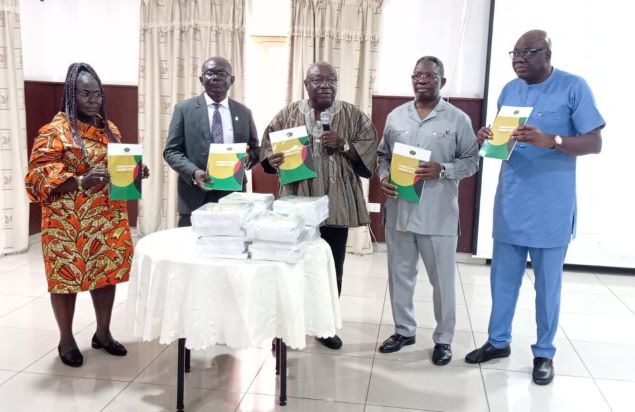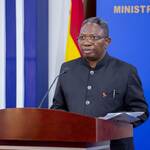An expenditure report detailing how funds received by the Ghana AIDS Commission (GAC) and spent over the last three years has shown that the GAC spent $323 million ($323,757,110) between 2019 and 2021.
The report, which is titled the National AIDS Spending Assessment (NASA) shows that on a yearly basis, the GAC spent about $88.6 million ($88,648,568) in 2019, some $107.2 million ($107,280,242) in 2020, and $127,8 million ($127,828,300) in 2021.
Even though the funding amounts have been increasing steadily over the last three years, it is worth noting that the total amount expended by GAC in 2019 ($88,648,568) was about $4 million less than the 2018 amount of ($92.5 million ($92,573,993).
International funding
The NASA report showed that more than 40% of the GAC’s funds came from donor sources.
In 2019, about 42% of the GAC’s funding, representing around $37.3 million ($37,323,398.6) came from foreign sources.
In 2020, the foreign component of the GAC’s expenditure was about 40%, which amounts to about $42.9 million ($42,912,096.8).
For 2021, donor partners provided about 41% of the GAC’s funds. This amounts to around $52.4 million ($52,409,603).
Public sector funding
Public sector funding as a proportion of the monies generated for the activities of the GAC for the 2019-2021 period declined sharply from the 2018 high of 51%, to 33% in 2019, 34% in 2020, and 34% in 2021.
This means that in 2019, about $29.2 million ($29,254,027.4) of the GAC’s funds came from the public sector.
In 2020, public sector funding for GAC’s expenses accounted was about $36 million ($36,475,282.3).
In 2021, it increased to a little over $43.4 million ($43, 461, 622,) of the GAC’s funding, representing about 34% of total expenses.
Private funds
Private funds, which are mainly out-of-pocket payments by individuals and some monies, generated by private organisations, increased sharply from 16% in 2018, to 25% in 2019, 26% in 2020 and 25% in 2021.
In monetary terms, this represents an increase in out-of-pocket payment of about $22.1 million ($22,162,142) in 2019.
The following year, 2020, this figure amounted to around $26.8 million ($26,820,060.5).
Meanwhile in 2021, the amounts of out-of-pocket payments made by people living with HIV and their relatives amounted to about $31.9 million ($31,957,075).
Some of the biggest donors towards HIV/AID care and prevention in Ghana include the government of the United States which spent $31 million ($31,048,624) in the three-year period, the Global Fund, which gave about $100 million in the period, as well as the United Nations Children’s Fund (UNICEF) which gave out about( $65 million ($65,843) in three years.
Spending areas
The NASA Report showed that the greater chunk of the monies generated went towards HIV care and treatment, with spending in this area ranging from 58% to 65% over the period
It was followed by ‘programme enablers and health system strengthening’ which took up just over a quarter of the expenses.
Third on the expenses list was HIV/AIDS prevention which received between 7.5% and 9.3% of total expenditure.
Cash and carry returning among healthcare providers
In an interview with The Finder, Director General of the GAC, Dr. Kyeremeh Atuahene expressed worry over the practice of health care providers demanding payments from patients before dispensing the antiretroviral drugs to the patients.
He stated that due to the challenges the National Health Insurance Scheme (NHIS) is facing, some health facilities have decided to charge patients for some of their services, including laboratory services.
He said that currently, GAC is expecting these facilities to work under the term of the NHIS.
Due to these challenges, he indicated that last year, 2021, more than 30% of people receiving antiretroviral treatment discontinued the treatment, resulting in the deaths of many.
He thus appealed to the government and the Ministry of Finance to ensure that the National Health Insurance Authority (NHIA) receives its releases on time and in the right amounts.
He stated further that Ghana as a country is committed to achieving the universal health coverage, and the situation clearly undermines the objectives and efforts which have been made towards ending AIDS by the year 2030.
“There should not be barriers to accessing health care services, especially for people living with HIV,” he stressed.
He urged the citizens of Ghana to support the funds established for people living with HIV.
- JM, touch not the annointed - 3 May 2025
- Online blackmail and sextortion soaring –CSA - 2 May 2025
- No amnesty for people who resigned from NPP – Kodua - 2 May 2025

